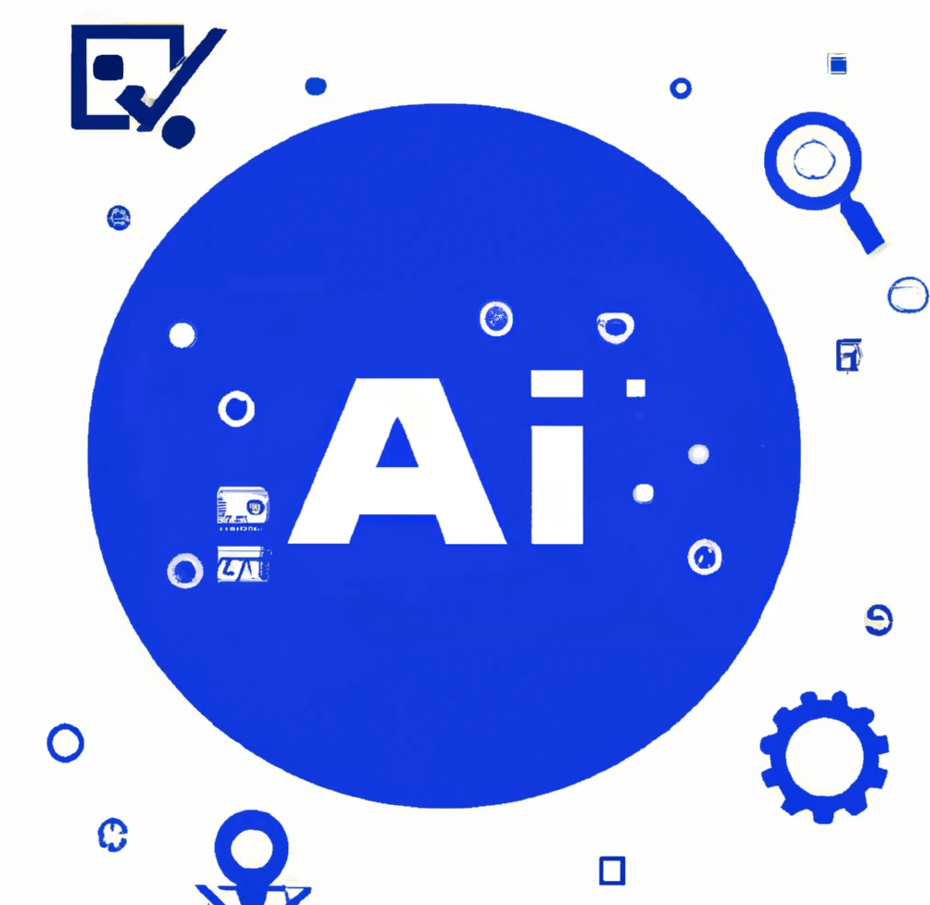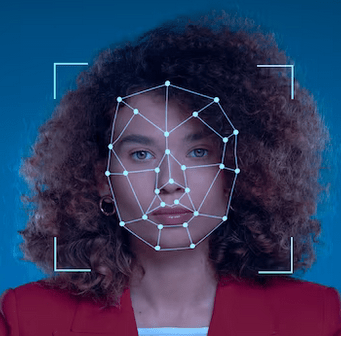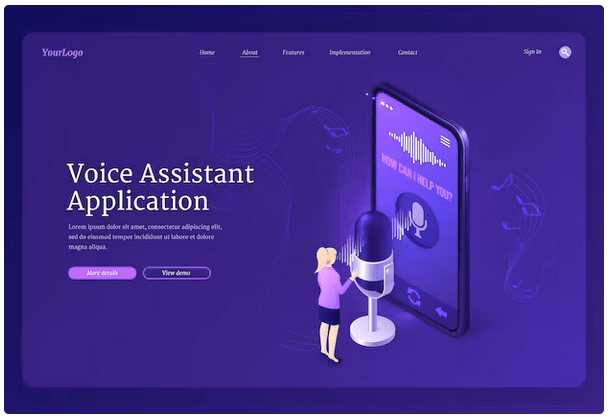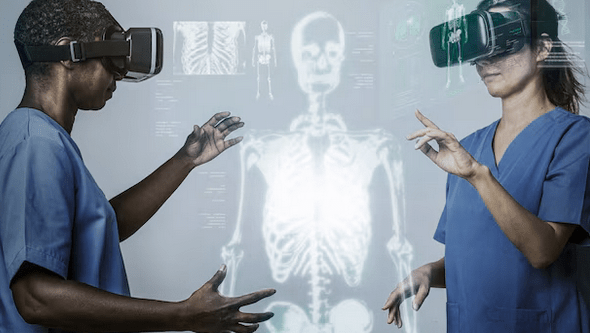
The Future of AI in Healthcare: A Visual Guide
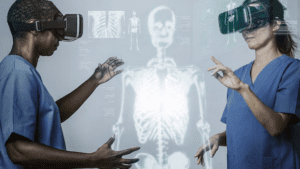
The landscape of healthcare is rapidly evolving, and at the heart of this transformation lies the integration of artificial intelligence (AI). From early disease detection to personalized treatment plans, AI is set to revolutionize healthcare as we know it. In this visual guide, we’ll take you on a journey through the future of AI in healthcare, exploring the latest trends, key insights, and the practical implications of this groundbreaking technology.
Chapter 1: Understanding The Future of AI in Healthcare
Before we dive into the future, let’s build a solid foundation by understanding what AI in healthcare really means. We’ll break down the core concepts and technologies that make it all possible.
What Is AI in Healthcare?
Artificial Intelligence in healthcare refers to the use of advanced algorithms and data analysis to assist medical professionals in diagnosing and treating patients. It includes a wide range of applications, from predictive analytics to robot-assisted surgeries.
Key Technologies in AI Healthcare
- Machine Learning: This subset of AI focuses on developing algorithms that can improve with experience. It’s widely used in predictive modeling, disease detection, and personalized medicine.
- Natural Language Processing (NLP): NLP allows computers to understand, interpret, and generate human language. In healthcare, it’s used for medical record analysis and chatbots.
- Computer Vision: Computer vision enables AI systems to interpret and understand visual information, such as medical images like X-rays and MRIs.
- Robotics: AI-driven robots are assisting surgeons in delicate procedures, making surgeries more precise and less invasive.
The Role of Big Data
AI in healthcare relies on big data. The more data AI systems have access to, the better they can perform. Electronic health records (EHRs), patient histories, and medical research data are all valuable sources of information.
Benefits of AI in Healthcare
AI offers several benefits in healthcare:
- Early Disease Detection: AI can analyze medical data to identify diseases at earlier stages, improving treatment outcomes.
- Personalized Medicine: AI can create treatment plans tailored to an individual’s genetics, lifestyle, and preferences.
- Efficiency: AI can automate routine tasks, allowing healthcare providers to focus on patient care.
- Telemedicine: AI is facilitating remote consultations and monitoring, providing healthcare access to more people.
Chapter 2: Early Disease Detection
One of the most promising applications of AI in healthcare is early disease detection. Learn how AI-powered diagnostic tools are changing the game and helping healthcare providers detect diseases at their earliest stages.
The Importance of Early Detection
Early detection of diseases often leads to better outcomes. AI can analyze patient data, including medical imaging and genetic information, to spot early signs of diseases like cancer and heart conditions.
AI in Radiology
Radiologists are using AI algorithms to analyze X-rays, MRIs, and CT scans. These algorithms can quickly identify abnormalities and highlight them for further review.
Genetic Screening
AI can analyze a patient’s genetic information to identify genetic predispositions to diseases. This information can guide preventive measures and personalized treatment plans.
Chapter 3: Personalized Treatment Plans
Every patient is unique, and AI is helping healthcare professionals create personalized treatment plans that consider an individual’s genetic makeup, lifestyle, and more.
Tailoring Treatments
AI can process vast amounts of patient data to create personalized treatment plans. For example, it can suggest specific medications or therapies based on a patient’s genetic markers.
Drug Discovery
AI is significantly speeding up the drug discovery process. By analyzing chemical structures and biological data, AI can identify potential drugs more efficiently.
Rehabilitation and Therapy
AI-powered devices can provide personalized rehabilitation exercises and therapy plans. These can be adjusted based on the patient’s progress.
Chapter 4: Telemedicine and Remote Monitoring
The COVID-19 pandemic accelerated the adoption of telemedicine, and AI is further enhancing remote healthcare services. Discover how AI is improving patient monitoring and consultations.
Telehealth Benefits
Telehealth has made healthcare more accessible and convenient. AI-driven chatbots and virtual assistants can assist patients in scheduling appointments and provide basic medical information.
Remote Monitoring
AI devices can continuously monitor a patient’s vital signs and send real-time data to healthcare providers. This is especially valuable for patients with chronic conditions.
Chapter 5: Data Security and Privacy
As AI becomes more integrated into healthcare, data security and patient privacy are paramount. We’ll explore the measures in place to protect sensitive medical information.
Data Encryption
Protecting patient data through encryption is a fundamental security measure in healthcare. AI can help identify vulnerabilities and strengthen encryption methods.
Compliance with Regulations
AI systems in healthcare must comply with regulations such as HIPAA (Health Insurance Portability and Accountability Act) to ensure patient data privacy and security.
Ethical Considerations
AI in healthcare raises ethical questions, such as data ownership, consent, and bias in algorithms. Healthcare organizations are working on ethical guidelines and standards.
Chapter 6: Real-World Examples
Throughout this guide, we’ll provide real-world examples of how AI is making a difference in healthcare. From image recognition to drug discovery, these cases will illustrate the practical impact of AI.
Chapter 7: Future Trends and Challenges
The future of AI in healthcare holds numerous exciting possibilities, but it’s not without its challenges. In this chapter, we’ll explore some of the most prominent trends and potential roadblocks on the horizon.
Trends in AI Healthcare
1. Predictive Healthcare Analytics
AI will continue to advance in predictive analytics. This includes forecasting disease outbreaks, hospital resource management, and personalized patient care plans.
2. Drug Development Acceleration
AI’s role in drug development will expand, potentially leading to quicker and more cost-effective drug discovery processes. This could mean more effective treatments for a wide range of diseases.
3. AI-Enhanced Imaging
The use of AI in medical imaging will become more sophisticated. Enhanced image recognition and diagnostic accuracy will aid healthcare providers in diagnosing and treating patients.
4. Wearable Health Tech
Wearable devices will increasingly incorporate AI capabilities. They will monitor a broader array of health metrics, potentially catching health issues before they become severe.
5. Robotics in Healthcare
Robots will continue to be deployed in healthcare settings, assisting surgeons in complex procedures, delivering medications, and providing companionship for patients.
Challenges to Address
1. Data Privacy Concerns
With the growing use of AI, the privacy and security of patient data are paramount. Ensuring that data is protected from breaches and misuse is a constant challenge.
2. Ethical Dilemmas
Decisions made by AI in healthcare, such as treatment plans, raise ethical questions. Determining who is accountable for AI’s actions is a challenge that healthcare institutions must address.
3. Regulatory Compliance
Navigating the complex landscape of healthcare regulations and ensuring that AI systems are compliant is an ongoing challenge. This includes adhering to standards like HIPAA.
4. AI Bias Mitigation
AI systems can inherit biases from the data they are trained on. Recognizing and mitigating bias to ensure fair and equitable healthcare is essential.
5. Integration and Training
Implementing AI systems into existing healthcare infrastructure and ensuring that medical professionals are proficient in using them is a significant challenge. Training programs and change management are vital.
Conclusion: The Future of AI in Healthcare
In this comprehensive guide, we’ve delved into the exciting world of AI in healthcare. From its foundational concepts to real-world applications and future trends, we’ve witnessed the transformation that artificial intelligence is bringing to the medical industry.
AI in healthcare is more than just a buzzword; it’s a catalyst for change. It has already shown its potential in areas such as medical imaging, predictive analytics, drug discovery, and personalized medicine. The journey has just begun, and the path ahead is filled with possibilities.
Frequently Asked Questions
. What is the role of AI in healthcare?
- AI plays a significant role in healthcare by improving diagnostics, personalizing treatment plans, speeding up drug discovery, and enhancing medical imaging, among other applications.
2. How is AI improving patient care in healthcare?
- AI is enhancing patient care by providing more accurate and quicker diagnoses, predicting health outcomes, and enabling personalized treatment approaches.
3. Are there any privacy concerns with AI in healthcare?
- Yes, privacy concerns exist due to the use of sensitive patient data. Regulations like HIPAA and GDPR are in place to safeguard patient information and govern the use of AI in healthcare.
4. What are the challenges in implementing AI in healthcare?
- Challenges include data privacy and security, ethical considerations, regulatory compliance, potential biases in AI algorithms, and the integration of AI systems with existing healthcare infrastructure.
5. Can AI replace doctors and nurses in healthcare?
- AI cannot replace healthcare professionals but can assist them in making more accurate and timely decisions. The combination of human expertise and AI is a powerful approach.
6. What are some future trends in AI healthcare?
- Future trends include predictive analytics, wearable health tech, robotics, remote patient monitoring, and AI-driven drug discovery. These innovations aim to improve patient care and lower costs.
7. How can patients benefit from AI in healthcare?
- Patients can benefit from AI through quicker and more accurate diagnoses, personalized treatment plans, and improved access to healthcare services, even in remote areas.
8. Is AI in healthcare safe and reliable?
- AI in healthcare is continually improving in terms of safety and reliability. Stricter regulations and ongoing research are aimed at making AI systems in healthcare as safe and reliable as possible.
9. What ethical considerations are associated with AI in healthcare?
- Ethical considerations in AI healthcare involve issues like informed consent, patient data ownership, transparency of AI algorithms, and avoiding bias in treatment recommendations.
10. How can healthcare professionals and institutions prepare for the AI revolution in healthcare?
- Healthcare professionals can stay updated with AI advancements through continuous learning. Institutions should invest in AI technology, ensure data security, and develop guidelines for responsible AI use.
